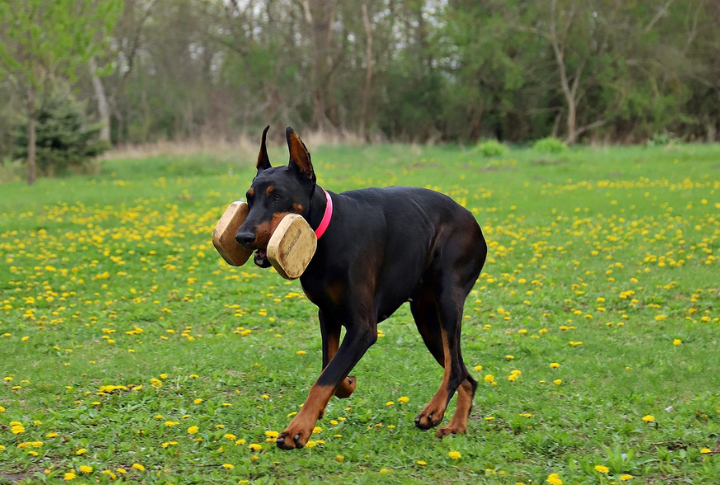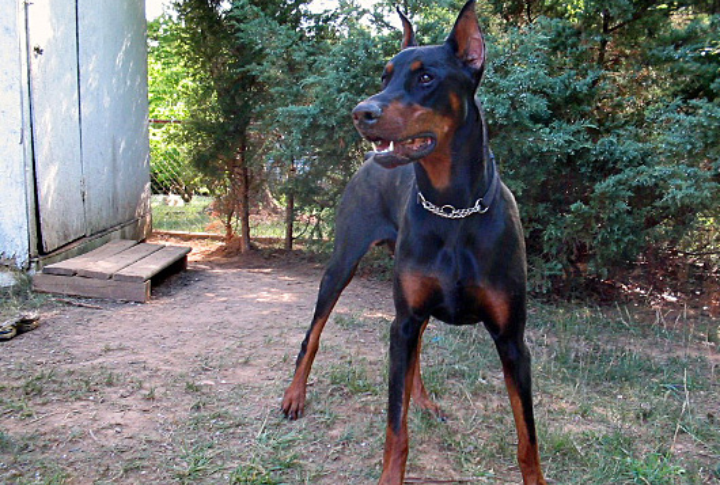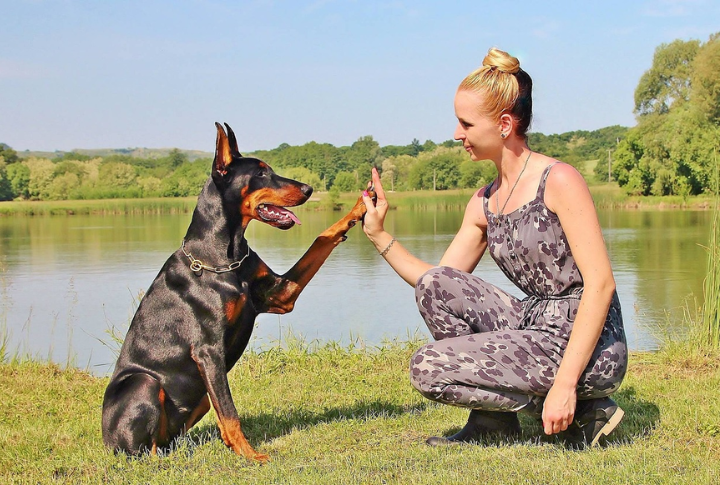10 Things Every First-Time Doberman Owner Should Know

Bringing home a Doberman means sharing your space with a bold, intelligent companion who notices everything. Their loyalty runs deep, and their presence has a way of changing routines in the best possible way. Before long, you’ll understand their rhythm—and they’ll learn yours. Here’s how to start building that connection.
Understand Their High Energy Levels

Unspent energy turns Dobermans into indoor wrecking balls. They aren’t naturally calm—they need to earn it through movement. Give them 90 minutes of meaningful activity, not just a backyard run. Think agility work or obedience games. Keep them busy, and they’ll reward you with peace at home.
Early Socialization Is Critical

When Dobermans don’t experience the world around them early on, things like barking at guests or reacting to harmless sounds can become the norm. Introducing different sights, people, and animals while they’re young helps curb that. Puppy classes also go a long way in building confidence and reducing tension.
Consistent Training Builds Trust

They respond best to calm, reward-based training that builds confidence with repetition. Harsh methods can break that trust, so it’s better to keep sessions brief and focused on reinforcement that sticks. Or else, Dobermans may start pushing boundaries or ignoring commands without clear structure and guidance.
Understand Their Sensitivity

Loud corrections or sudden tension in the home can throw a Doberman off. Beneath the tough exterior is a dog that quickly picks up on emotional shifts. They do better with gentle correction and a serene, predictable environment. In a patient and affectionate environment, they’re more secure and easier to guide.
Prioritize Regular Veterinary Care

Routine vet visits aren’t just a box to check—they help catch heart conditions, joint issues, and other problems before they snowball. Skipping them can mean missing early warning signs. Stay on top of ear cleanings and dental care, and don’t let vaccines fall behind—it all adds up to better health.
Provide High-Quality Nutrition

The effects of diet show up fast: dull coats, stomach trouble, low energy, or frequent scratching. That’s why protein should be the foundation of their meals. Some dogs in this breed don’t do well with grain-heavy food, so it’s worth checking the label. Alongside good nutrition, steady hydration keeps their kidneys working properly.
Mental Stimulation Prevents Boredom

Mental stimulation isn’t optional for Dobermans—it’s essential. One day, they need a scent game, and the next, a problem-solving task or quick training session. Variety keeps them steady and helps prevent behavior issues. Without it, boredom sets in fast, often turning into obsessive habits or creative chaos around the house.
Secure Your Home And Yard

What feels normal to you might look like a threat to a Doberman. That’s why clear training and strong boundaries matter. Teaching them the difference between everyday sights and true danger helps avoid overreactions. A flimsy fence is all it takes for them to bolt after something they misread.
Be Prepared For Their Protective Instincts

Loyalty runs deep in this breed, which is part of its appeal—but it comes with responsibility. Without firm leadership, that dedication can lead to overreaction. They look to their humans for cues, so staying calm and in control shapes how they respond when something unfamiliar enters their space.
Commit To Lifelong Companionship

Sudden changes throw Dobermans off balance. When their people vanish for long hours or routines keep shifting, it chips away at their sense of safety. These dogs do best with steady interaction. Over their 10 to 13-year lifespan, what they need most is someone who shows up every day.





